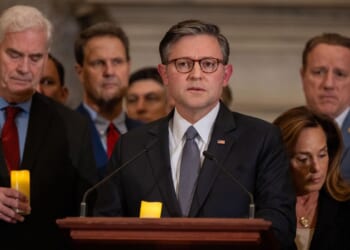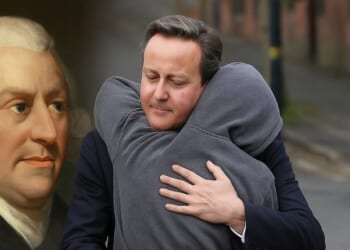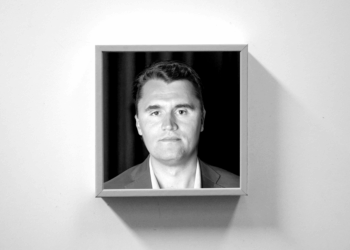By Donald Jeffries
Donald Trump’s much ballyhooed “One Big Beautiful Bill Act” (OBBBA) was recently signed into law. Proponents claim that it is the greatest legislation ever passed. Critics say it is typical Republican prioritizing at its worst. It is estimated the bill could increase the deficit by an astounding $3.4 trillion, adding to our incomprehensible national debt that will now exceed $1 trillion in interest alone.
One Big Beautiful Bill Act Mixed-Bag for Middle Class
Many conservatives are happy with the $150 billion the OBBBA invests in defense and national security. This includes $29 billion for revitalizing our stagnant domestic shipbuilding industry. This includes two guided missile destroyer ships at $5.4 billion each.
The OBBBA directs over $10 billion in new nuclear initiatives. Trump’s much talked about “Golden Dome” is in the bill, to the tune of $24.4 billion. Trump had signed a Jan. 27 Executive Order on the “Iron Dome for America,” which announced that his administration was “deploying and maintaining a next-generation missile defense shield” for the common defense of the United States.
Over $8 billion in the Industrial Base Fund are reserved specifically for investments in critical mineral supply chains. Needless to say, those who were following the disclosures of the Department of Government Efficiency and were excited to hear about a full audit of the Pentagon would not find these new expenditures in our bloated military industrial complex to be good news. But it was predictable, following Trump’s record-setting trillion-dollar defense budget.
The OBBBA does provide significant tax changes that should help with the building of new manufacturing facilities. Businesses will be allowed to fully and immediately deduct the cost of constructing new factories. The law also enhances tax credits for semiconductor firms building such factories.
The National Federation of Independent Business, a leading small business lobbying group, praised the legislation for establishing a permanent deduction for owners of pass-through entities that pay business taxes on their individual returns. This deduction applies to partnerships formed by lawyers, doctors, and investors, as well as other small businesses. Trump at least partially followed through with his promise to end taxes on tips and overtime.
Employees who traditionally receive tips as a significant part of their income, such as restaurant servers, can deduct up to $25,000 in tip income from their federal tax returns. Hourly workers will now be able to deduct up to $12,500 of overtime pay as well. Trump and his administration contend that “No tax on Social Security is a reality in the One Big Beautiful Bill.”
Just after the OBBBA was passed, the Social Security Administration sent out an email claiming that the bill “eliminates federal income taxes on Social Security benefits for most beneficiaries.” This is misleading, because the law doesn’t stop what has amounted to double taxation since it was first implemented in the 1980s.
Instead, the OBBBA creates a new tax deduction for those 65 and older. Since a large number of Social Security recipients already pay no taxes on their benefits, because they have little or no extra income, this new deduction is expected to primarily help middle- and upper-income earners. The biggest benefits will go to those earning between $80,000-$130,000, according to the Tax Policy Center.
However you look at it, this isn’t what Trump promised, and is still maintaining he delivered. Until the 1980s, ironically under avowed tax cutter Ronald Reagan, the thought of taxing Social Security benefits would have been considered outrageous. Taxpayers are simply being incrementally paid back for the income that was withheld from them over the course of their working lives.
Many hospitals are unhappy with the OBBBA. The law reduces the support they receive from states to care for Medicaid patients, and leaves them with more uncompensated care costs for uninsured patients.
The legislation creates some $1 trillion in Medicaid cuts, although it does contain a $50 billion fund to help rural hospitals deal with the Medicaid cuts.
The OBBBA strips tax incentives for wind, solar, and other renewable energy projects and places stringent requirements for new developers. The American Clean Power Association criticized the legislation as a “step backward for American energy policy” and charged that it will eliminate jobs and raise electric bills.
The legislation also ends electric vehicle tax credits of up to $7,500 at the end of September, which provided an incentive to buy electric vehicles.
The law also institutes work requirements for Medicaid recipients for the first time in history, and expands the work mandate in the SNAP (Food Stamps) program. Many people on Medicaid have conditions that preclude employment, and many don’t.
As happens invariably in Republican-led legislation, the tax cuts in the OBBBA increase with income level, so that the wealthiest earners receive the largest tax cuts.
All told, the OBBBA is a mixed bag, but it at least scratches the surface in terms of the many problems America is facing today.
(function() {
var zergnet = document.createElement(‘script’);
zergnet.type=”text/javascript”; zergnet.async = true;
zergnet.src = (document.location.protocol == “https:” ? “https:” : “http:”) + ‘//www.zergnet.com/zerg.js?id=88892’;
var znscr = document.getElementsByTagName(‘script’)[0];
znscr.parentNode.insertBefore(zergnet, znscr);
})();
























